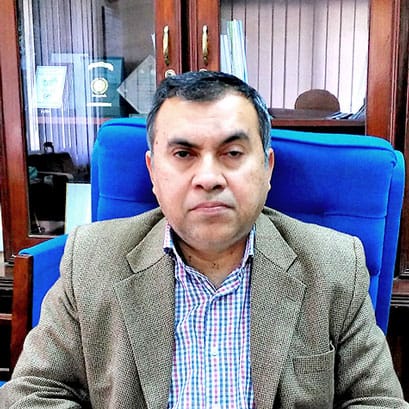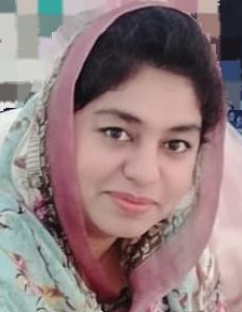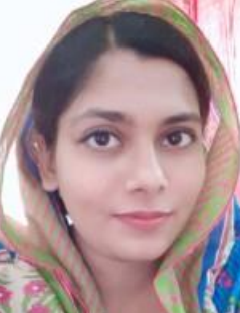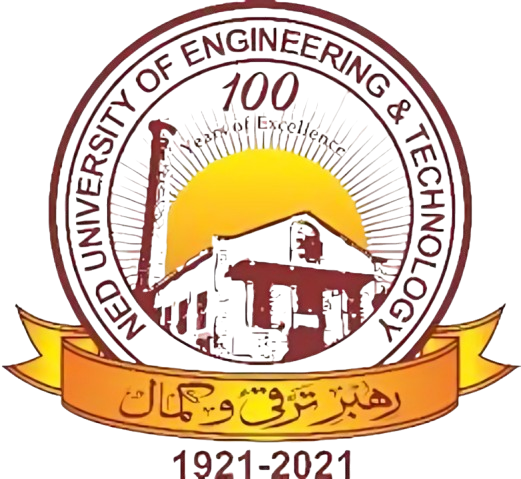Welcome to 11th ICLAP 2025
ICLAP 2025 Introduction
The Department of English Linguistics and Allied Studies at NED University of Engineering & Technology is honored to host the 11th International Conference of the Linguistics Association of Pakistan (ICLAP 2025), scheduled for November 5-7, 2025. This marks the second occasion that NED University has hosted this prestigious event, the first being in 2017. As the flagship conference of the Linguistics Association of Pakistan, ICLAP 2025 will convene distinguished academics, experts, and professionals from around the globe and across Pakistan. The conference program will feature keynote and plenary sessions, technical lectures, workshops, panels, colloquia, and paper presentations, providing a comprehensive platform for knowledge sharing and collaboration.
Aims and Scope
The theme for ICLAP 2025 is "Exploring the Intersections of Language, Technology, and Society: Advancing Internationalization, Sustainability, and Inclusive Development." This theme aims to foster interdisciplinary dialogue on the intersections of language, technology, and society, bringing together linguists, educators, technologists, and policymakers to advance research, innovation, and inclusive development. The conference promotes sustainable language practices, linguistic diversity, and the role of AI and digital tools in education, communication, and policymaking. Through critical discussions on language policy, identity, and accessibility, ICLAP seeks to shape a linguistically inclusive, technologically progressive, and socially sustainable future.
ICLAP 2025 will attract a diverse array of speakers and participants, including academics and researchers in linguistics and related fields, language educators and practitioners, graduate and postgraduate students, policymakers, and representatives from non-governmental organizations involved in language preservation and education. The conference will offer various sessions and programs, such as keynote speeches by renowned international and national experts, plenary talks, thematic sessions, technical workshops, panel discussions, and paper presentations. These sessions are designed to provide a comprehensive platform for knowledge sharing, networking, and collaboration among professionals dedicated to the advancement of linguistics and its related disciplines.
Alignment with UNESCO Chair on Sustainable Urban Regions
NED University's UNESCO Chair on Sustainable Urban Regions is dedicated to promoting sustainable practices and achieving Sustainable Development Goal (SDG) 11: "Make cities inclusive, safe, resilient, and sustainable." The Chair's objectives include training students in sustainable practices, integrating SDG 11 with other SDGs through research and projects, and fostering networks of professionals and researchers via conferences and workshops. ICLAP 2025 aligns with these objectives by serving as a platform that brings together a network of professionals and researchers to discuss and promote sustainable language practices and policies. By addressing themes related to language, technology, and society, the conference contributes to creating inclusive and sustainable urban communities, thereby supporting the Chair's mission.
Furthermore, the conference's focus on advancing internationalization, sustainability, and inclusive development through language and technology directly supports several SDGs. For instance, promoting linguistic diversity and inclusive language policies aligns with SDG 10: "Reduce inequality within and among countries." Discussions on the role of AI and digital tools in education contribute to SDG 4: "Ensure inclusive and equitable quality education and promote lifelong learning opportunities for all." By fostering interdisciplinary dialogue and collaboration, ICLAP 2025 also supports SDG 17: "Strengthen the means of implementation and revitalize the Global Partnership for Sustainable Development."
In essence, ICLAP 2025 not only advances the field of linguistics but also contributes to broader societal goals by aligning with the objectives of NED University's UNESCO Chair on Sustainable Urban Regions and supporting the achievement of multiple Sustainable Development Goals.
Aims of the Conference
- Foster Interdisciplinary Dialogue: Facilitate discussions among linguists, educators, technologists, policymakers, and social scientists to explore how language interacts with digital advancements, education, and society.
- Advance Research in Linguistics and Language Technologies: Encourage theoretical and applied research in linguistics, AI-driven language processing, computational linguistics, and emerging trends in multilingual digital communication.
- Support Sustainable Language Practices: Promote the documentation, preservation, and revitalization of endangered and indigenous languages through digital tools, lexicography, and policy interventions.
- Examine the Role of Language in Identity and Social Change: Investigate how language, literature, and digital media shape individual and collective identities, national discourse, and sociopolitical narratives.
- Enhance Language Education for a Globalized World: Address challenges and innovations in TESOL, bilingual/multilingual education, translanguaging, and digital learning environments.
- Engage with the Politics of Language and Knowledge: Critically examine issues of linguistic rights, language policy and planning, equitable access to education, and the socio-political impact of language in diverse contexts.
- Explore the Changing Landscape of Linguistics as a Discipline: Discuss the evolving focus of linguistics programs, integrating AI, NLP, neurolinguistics, and applied research to align with global academic and industry trends.
- Promote Inclusive and Accessible Communication: Advocate for assistive language technologies, inclusive digital platforms, and equitable language governance for diverse linguistic communities.
- Strengthen Global and Regional Collaboration: Build networks among academics, professionals, and policymakers to foster international partnerships for research, education, and policy development.
By addressing these aims, ICLAP 2025 seeks to contribute to the development of a linguistically inclusive, technologically progressive, and socially sustainable future.
Who is this Conference for? Target Audience to Present/Attend!
Professionals, researchers, and postgraduate students from a variety of disciplines (listed below) may find the conference themes, sub-themes, and topics relevant. We encourage participation and presentations at ICLAP 2025, which focuses on cross-disciplinary and multidisciplinary ideas, issues, perspectives, and developments at the intersections of:
- Languages and Literature
- Theoretical & Applied Linguistics
- Sociolinguistics
- Psycholinguistics
- Language Education & Literacy Studies
- TESOL
- Education
- Higher Education
- Computer Science
- Artificial Intelligence
- Educational Technology
- Computational Linguistics
- NLP
- Translation & Interpreting Studies
- Anthropology
- Public Policy
- Gender Studies
- Media Studies
- Sociology
- Media & Discourse
- Development Studies
- Community Development
- Speech Recognition and Assistive Technologies
- Communication Studies
- Cyber-Linguistics & Online Communication
- Migration Studies
Themes & Topics
Conference Theme:
Exploring the Intersections of Language, Technology, and Society: Advancing Internationalization, Sustainability, and Inclusive Development.
Language, Society, and Identity in a Multicultural World
- Theoretical and applied linguistics in understanding societal and cultural dynamics.
- Language as a medium of identity, power, and social cohesion in multilingual societies.
- Language and nationhood: standardization, policy, and national identity formation.
- Media and representation: how literature, film, and digital media shape linguistic identities.
- Intergenerational perspectives on language use, continuity, and change.
- Language and gender: How language reflects and reinforces gender identities and power structures.
- Exophonic English literature by Pakistani writers: Exploring linguistic creativity and identity.
- The role of multilingualism in literary expression and cultural representation.
- Code-switching and hybrid linguistic styles in contemporary South Asian literature.
Technology, AI, and Language Education: Advancing Global Learning
- AI-driven tools for multilingual education and equitable access to learning.
- The role of AI and digital platforms in language acquisition and literacy development.
- Enhancing Pakistan’s EdTech sector for international collaboration and digital learning.
- Assistive technologies for inclusive communication: speech-to-text, sign language recognition, and accessibility for diverse learners.
- Natural Language Processing and its impact on automated language learning and assessment.
- Neurolinguistic programming and its applications in language learning and cognitive development.
Linguistic Rights, Policy, and Governance in the Digital Era
- Language policy and planning for education, curriculum design, and linguistic equity.
- Balancing national language promotion with minority language preservation.
- Case studies on Pakistan’s linguistic landscape.
- Politics of language in critical applied linguistics: language ideologies, power, and control.
- National and institutional strategies for providing linguistic resources in indigenous languages.
- Policy frameworks for preserving linguistic diversity in educational curricula.
- The role of AI and language technology in facilitating linguistic justice and equitable access.
Sustainability, Endangered Languages, and Cultural Preservation
- The role of AI, digital archiving, and technology in preserving endangered languages.
- Indigenous languages in Pakistan and efforts for revitalization.
- Eco-linguistics and language preservation as part of sustainable development.
- Community-driven initiatives for documenting and revitalizing regional languages.
- Translanguaging as a pedagogical tool for linguistic sustainability and empowerment.
- The need for linguistic resources in indigenous languages: Developing digital dictionaries, corpora, and grammar tools.
- Training in lexicography for documenting indigenous languages and supporting linguistic sustainability.
- Addressing linguistic change in indigenous languages: Technology-driven solutions for language revitalization.
Digital Language Accessibility and the Global Economy
- Multilingual AI-powered tools for translation, localization, and cross-cultural collaboration.
- Enhancing Pakistan’s workforce (freelancing, IT, academia) with better language technologies.
- Addressing digital divides in language accessibility for rural and low-income communities.
- Strategies for making digital spaces inclusive for non-native speakers and marginalized groups.
- Digital Englishes: The evolution of English in online spaces and professional settings.
Sociolinguistic Shifts and Power Dynamics in the Digital Age
- The impact of social media, AI-generated content, and digital discourse on language use.
- How online communication reshapes linguistic identities and cultural expressions.
- Language and misinformation: challenges in digital communication.
- Cyber-linguistics: studying emerging trends in virtual environments and digital interactions.
- Pakistani English in the digital age: Description, usage, and perceptions.
Global Englishes, TESOL, and Language Teaching for a Changing World
- World Englishes and Global Englishes Language Teaching (GELT): Teaching beyond native norms.
- Pakistani English: Linguistic description, pedagogy, and recognition in academic contexts.
- TESOL in multilingual contexts: Challenges and innovations in teacher education.
- Translanguaging in TESOL: Bridging home and school languages for effective learning.
- Psycho-social aspects of language education: Motivation, identity, and emotional well-being in language learners.
Interdisciplinary Approaches to Language, Technology, and Development
- Language and socio-economic development: education, healthcare, and governance.
- The intersection of language, sustainability, and urban/rural development.
- Ethical AI, linguistic justice, and inclusive digital transformation.
- Language in migration, integration, and social cohesion.
- Multidisciplinary research bridging linguistics, technology, and societal progress.
The Shifting Scope of Linguistics: Emerging Trends and Challenges for the Universities Offering Study and Research Programs
- The evolving focus of linguistics programs in response to globalization and technological advancements.
- Adapting linguistics curricula to address globalization, digital transformation, and interdisciplinary research.
- Integrating computational linguistics and AI-driven language analysis into linguistics curricula.
- Balancing theoretical and applied linguistics in response to industry demands and career pathways.
- Preparing linguists for interdisciplinary roles in technology, media, and policy-making.
- The role of universities in fostering linguistic research that contributes to social, technological, and policy advancements.
- Balancing theoretical linguistics with applied, socio-political, and sustainability-driven approaches.
Invited Speakers
Keynote Speakers
.png)
Dr. Sheena Gardner
Professor, Coventry University, Coventry, England, UK

Dr. Robert McColl Millar
Professor, University of Aberdeen, Scotland, UK
Esteemed Panelists
![Prof. Zhang Xiaoping]()
Prof. Dr. Zhang Xiaoping
Professor, Sichuan Normal University, Chinese Director-CIUK
![Dr. Hina Hussain Kazmi]()
Dr. Hina Hussain Kazmi
Technical Expert | Women Parliamentary Caucus, Sindh
![Dr. Maya Khemlani David]()
Dr. Maya Khemlani David
Honorary Professor, University of Malaya, Malaysia
![Mr. Shamim Manzar]()
Mr. Shamim Manzar
German Language Teaching Expert
![Ms. Shahnaz Hunzai]()
Ms. Shahnaz Hunzai
Burushaski Research Academy, Pakistan
![Mr. Musab Hikmet Soy]()
Mr. Musab Hikmet Soy
Turkish Language Teaching Expert
![Dr. Sabiha Khatoon]()
Dr. Sabiha Khatoon
Associate Professor and Director, Mehnan University Centre of English Language and Linguistics
![Ms. Syeda Sarah Junaid]()
Ms. Syeda Sarah Junaid
Chairperson, Jinnah University for Women
![Dr. Sumera Umrani]()
Dr. Sumera Umrani
Associate Professor, University of Sindh
![Dr. Muntazar Mehdi]()
Dr. Muntazar Mehdi
Assistant Professor and Head, Department of English (UGS), NUML Islamabad & Chairman, Linguistics Association of Pakistan (LAP)
![Mr. Wafa Mansoor Buriro]()
Mr. Wafa Mansoor Buriro
Assistant Professor, Sindh Madressatul Islam University
![Ms. Zahra Khan]()
Ms. Zahra Khan
Assistant Professor, Bahria University
Distinguished Featured Speakers
![Dr. Shahid Siddiqui]()
Dr. Shahid Siddiqui
Dean, Faculty of Social Sciences, Media Studies, Art and Design, Lahore School of Economics
![Dr. Ram Ashish Giri]()
Dr. Ram Ashish Giri
Academic, Monash College/Monash University, Melbourne, Australia
![Prof. Shaila Sultana]()
Prof. Shaila Sultana
Director, BRAC Institute of Language & Professor, BRAC University, Bangladesh
![Dr. Elif Kemaloglu-Er]()
Dr. Elif Kemaloglu-Er
Associate Professor, Adana Alparslan Turkes Science and Technology University, Türkiye
![Rumana Husain]()
Rumana Husain
Writer, Editor, Educational Consultant
![Dr. Mian Md. Naushad Kabir]()
Dr. Mian Md. Naushad Kabir
Professor of TESOL, Institute of Modern Languages, University of Dhaka, Bangladesh
![Dr. Nadia Anwar]()
Dr. Nadia Anwar
Dean, School of Liberal Arts, University of Management and Technology, Lahore, Pakistan
![Prof. Habibullah Pathan]()
Prof. Habibullah Pathan
Professor, Sohar University, Oman
![Mr. Salman Asif Siddiqui]()
Mr. Salman Asif Siddiqui
Director, Educational Resource Development Centre
Incredible Workshop Leads
![Dr. Tafseer Ahmed]()
Dr. Tafseer Ahmed
Professor, MAJU & Former NLP Scientist at Alexa Translations
![Ms. Rabia Khalid]()
Ms. Rabia Khalid
Lecturer, Dow University of Health Sciences
![Dr. Muhammad Ali Khan]()
Dr. Muhammad Ali Khan
Professor, Community College of Philadelphia, USA
More speakers will be updated soon.
Call for Proposal
Proposal Categories
1. Research Paper Presentations
- Target Audience: Researchers, academics, industry professionals, and postgraduate students.
- Scope: Original, unpublished research aligned with the conference theme and sub-themes.
- Topics: Related to Conference Theme, Sub-Themes, and Topics identified under the scope of the ICLAP 2025 and available on the website click here.
2. Undergraduate Student Poster Presentations
- Eligibility: Undergraduate students globally.
- Purpose: Showcase innovative research or case studies in linguistics and related fields.
- Topics: Related to the conference themes. click here.
3. Technical Workshops
- Audience: Practitioners, educators, and researchers.
- Format: Interactive 60 to 90-minute hands-on sessions.
- Focus Areas:
- Tools & Methods:
- Natural Language Processing (NLP) for language documentation.
- AI-driven tools for automated language assessment.
- Skill Development:
- Computational linguistics for endangered language preservation.
- Ethical AI design for linguistic justice.
4. Promotional/Sponsored/Marketing Sessions
- For: EdTech companies, publishers, language-tech startups, NGOs, etc.
- Objective: Demonstrate products/services to a large conference audience.
- Examples:
- AI-powered translation/localization platforms.
- Digital learning solutions for multilingual education.
- Software for linguistic research or accessibility.
- Language Testing and Assessment Services
- contact: asimkhan@cloud.neduet.edu.pk
5. Undergraduate Students' Final Year Research/Capstone Project Paper Presentation
- Eligibility: Undergraduate students globally.
- Purpose: Showcase final year research / Capstone Project in linguistics and related fields.
- Topics: Related to the conference themes. click here.
Proposal Submission Guidelines
Please review the submission requirements for each proposal category below. All fields must be completed before the submission is accepted. To submit your proposal click here.
Criteria for Evaluation of Proposals
- Completeness and Conformity: Does the proposal meet submission and scientific standards?
- Relevance: Does the proposal relate to the conference theme and address a defined issue?
- Clarity, Theory, and Methodology: Is the proposal clearly structured and academically grounded?
- Objectivity and Originality: Is the content objective and novel?
- Language and Formatting: Does the proposal follow APA and standard academic English?
Please provide brief but specific academic/scientific details. Proposals related to local and foreign languages should include English translations. English is the medium for foreign languages; local language presenters may present in their own language.
A. Paper Presentation: Proposal Guidelines | Essential Elements
- Title of the Paper
- Conference sub-theme (select option)
- Conference topic (select option)
- Keywords (3 to 5 terms)
- Background & Problem Statement
- Significance / Contribution to Knowledge
- Theoretical/literature underpinnings/Theoretical framework
- Research Objectives / Questions
- Methodology : design, participants, tools, or data
- Key Findings : major outcomes (even if preliminary)
- Conclusion
- Minimum 5 Core References (APA style)
- Author(s) Name and Affiliation (max. 3 authors)
- Email Address(es)
B. UG Student Poster Presentation: Abstract Template Headings
- Poster Title
- Student Name(s), Year, and Program
- Affiliated Institution
- Faculty Mentor / Supervisor (if any)
- Conference sub-theme to which the proposal is aligned (select option)
- Conference topic to which the proposal is aligned (select option)
- Keywords 3 to 5 terms
- Research Background / Problem
- Significance / Aim of Study
- Methodology
- Major Findings
- Conclusion
- Student Email Address
C. Technical Workshop: Abstract Template Headings
- Workshop Title
- Presenter(s) / Facilitator(s) and Affiliation
- Focus Area (Tools & Methods / Skills Development)
- Conference sub-theme to which the proposal is aligned (select option)
- Conference topic to which the proposal is aligned (select option)
- Objectives (min. two)
- Structure of the Workshop | Key components or session outline
- Target Audience
- Expected Outcomes | Skills or knowledge participants will walk away with
- Materials/Equipment Required
- Workshop Duration (select response: 60 mins / 90 mins)
D. Promotional / Marketing Sessions: Abstract Template Headings
- Session Title
- Name (of the Organization/Brand/Business/Entity/NGO etc.)
- Names and brief details of Products/Services promoted with links to their official pages
- Session Type (Product Launch, Demo, Q&A, Branding Talk etc.)
- Name and Designation of Presenter(s)
- Objective / Purpose
- Product / Service Introduction
- Engagement Plan / Session Structure
- Target Audience
- Expected Outcomes (e.g., Brand awareness, networking, registrations, sales etc.)
Send your proposal to Dr M. Asim Khan at asimkhan@cloud.neduet.edu.pk
E. Undergraduate Students' Final Year Research/Capstone Project Paper Presentation
- Title of the Paper
- Author(s) Name and Affiliation (max. 5 authors)
- Email Address(es) of Author(s)
- Background
- Significance / Contribution to Knowledge
- Research Objectives / Questions
- Methodology – Approach, design, participants, tools , data analysis
- Key Results – Major outcomes or trends (even if preliminary)
- Conclusion
- Keywords – 3–5 terms
- 5 Core References (APA)
- Conference theme
- Subtheme
Fee Details
Presenter Registration Fee
| Deadline |
Virtual * |
Physical ** |
| International |
Local |
Local |
|
| Early Bird (September 1) |
USD 50 |
3000 |
4000 |
| Regular (October 1 to 10) |
USD 60 |
3500 |
5000 |
| Extended deadline (October 11 to 15) |
USD 80 |
4000 |
6000 |
* E-certificate & Program Book
** Conference materials, E-certificate, and Refreshments
Undergraduate Poster Presenter Registration Fee
| No. of Presenters |
Virtual |
Physical |
| International |
National |
International |
National |
| 1 Presenter |
USD 50 |
2500 |
USD 50 |
2500 |
| 2 Presenters |
USD 70 |
4000 |
USD 70 |
4000 |
| 3 Presenters |
USD 100 |
5500 |
USD 100 |
5500 |
| 4 Presenters |
USD 120 |
7000 |
USD 120 |
7000 |
* E-certificate & Program Book (for Virtual)
** Conference materials, E-certificate, and Refreshments (for Physical)
Undergraduate FYP / Paper Presentation Fee
| No. of Presenters |
Virtual |
In-Person |
| National (PKR) |
International (USD) |
National (PKR) |
International (USD) |
| 1 Presenter |
2500 |
50 |
3000 |
50 |
| 2 Presenters |
4000 |
70 |
5000 |
70 |
| 3 Presenters |
5500 |
100 |
7000 |
100 |
| 4 Presenters |
7000 |
120 |
9000 |
120 |
| 5 Presenters |
9000 |
140 |
12000 |
140 |
Virtual: Includes E-certificate and Program Book
In-Person: Includes Conference Materials, E-certificate, and Refreshments
Attendee/Participant Registration Fee
| Deadline |
Virtual * |
Physical ** |
| Early Bird (20 to 31 August 2025) |
USD 25 / 1500 |
2000 |
| Regular (1 to 15 September) |
USD 30 / 2000 |
2500 |
| Extended deadline 1 (16 to 30 September) |
USD 35 / 2500 |
3000 |
| Extended deadline 2 (1 to 15 October) |
USD 40 / 3000 |
3500 |
* E-certificate & Program Book
** Conference materials and E-certificate
For Group Discounts (5 and more attendees), email: ICLAP2025Conference@cloud.neduet.edu.pk
Note: No onsite registration.
Bank Account Details
Account Title: NEDUET Chairperson English Linguistics & Allied Studies Department
Account Number: 6 99 72 29301 714 226175
IBAN: PK29 MPBL 9972 1771 4022 6175
Bank: HABIB METRO
Bank Branch: Rashid Minhas Road Branch, Karachi
Registration
Submission of proposals or Registration for the 11th International Conference of the Linguistic Association of Pakistan (ICLAP 2025) will be done through the iclap conference management portal.
All participants including presenters, attendees, and workshop facilitators are required to register online.
Go to Portal




.png)




















